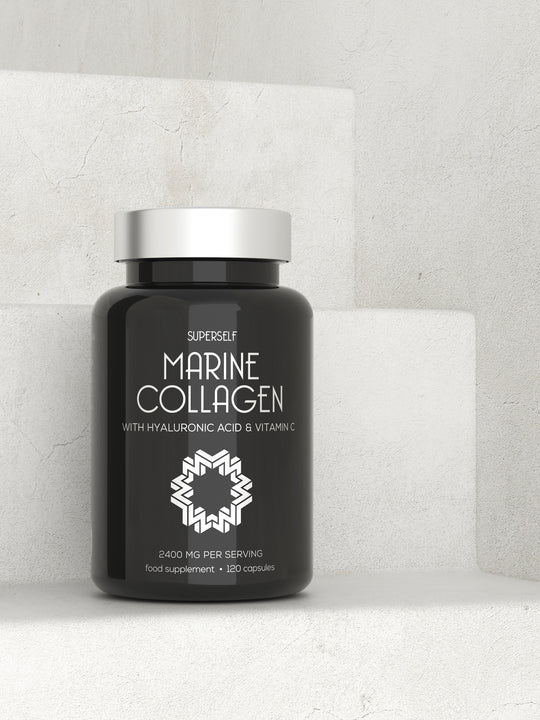Collagen is found in almost every part of the human body, from hair to toenails, skin to bones, vital organs to unwanted bulges. As we age, the body produces less collagen which causes a decline in function in various parts of the body, from wrinkled skin to stiff joints. This can’t be stopped, but the decline can be managed and slowed.
What exactly is collagen?
Collagen is a hard, insoluble, and fibrous protein. Its name comes from the Greek word for glue, and it is, in a sense, the glue that holds the body together. Rigid collagen is found in bones, supple collagen in skin and tendons, and various other forms in almost every part of the body, working to bind cells together and support other bodily systems.
Where does collagen come from?
Collagen is secreted by various cells, mainly in connective tissue. The ageing process causes collagen levels to deplete naturally over time. There is no way to prevent this. However, collagen decline and skin ageing are also affected by external factors, and we can control some of them. Slowing collagen decline may protect skin, bones, muscles and joints, as well as reduce visible signs of ageing.
7 ways to limit collagen decline and reduce visible signs of ageing
1. Quit smoking
Smoking tobacco damages your health in a number of ways, from causing lung cancer to increasing the likelihood of a severe or fatal Covid-19 outcome. As if that wasn’t enough, it also damages collagen and narrows blood vessels to the skin, reducing skin health and increasing visible signs of damage and ageing.
2. Moderate sun exposure
Some sunlight is certainly good for you, as it enhances mood and produces vitamin D. Excessive sun exposure accelerates the skin ageing process and causes collagen to break down more rapidly. UV rays in sunlight damage collagen in the skin, encouraging wrinkles.
3. Boost your diet
Collagen is formed in the body, so you need to give your cells the ingredients they need to manufacture this vital substance. Nutrients that may support collagen formation include prolinen (found in egg whites, meat, cheese, soy, and cabbage), anthocyanidins (found in blackberries, blueberries, cherries, and raspberries), vitamin C (found in many sources, including oranges, strawberries, peppers, and broccoli), copper (found in sources including shellfish, nuts, red meat, and some drinking water), and vitamin A (found in, among other things, liver, fish, carrots, and squash).
4. Cut back on sugar
High sugar consumption can deplete the levels of collagen within the body. Sugar can cause glycation, a process where blood sugars attach to proteins to form new molecules which damage nearby proteins, including collagen.
5. Try a massage
Massage can stimulate collagen production and strengthen muscle memory. Regular stimulation can lift, tone, and tighten the skin. A simple trick is to build upwards massage movements into your daily routine when applying products.
6. Avoid stress
Not the easiest switch to make, particularly when global events conspire against a tranquil life, but stress is known to affect collagen as cortisol (the stress hormone) breaks it down. Stress can increase the visible signs of ageing in several ways, accelerating the formation of wrinkles. Regular exercise can help mitigate this. The general health benefits of exercise are well known, and it can also help you balance your mood and reduce stress.
7. Supplements – a quick fix
While skin creams containing collagen are unlikely to help, targeted collagen supplements may. Collagen molecules are too large to be absorbed through the skin, but vitamin boosts – particularly vitamins C and A – can help the body produce more collagen.
Marine Collagen with Hyaluronic Acid & Vitamin C - 120 Capsules

£15.83
£21.90
Collagen is an essential part of your body, found in muscles, bones, skin, the heart and more. These marine collagen capsules, boosted with vitamin C and hyaluronic acid make it easy to get a regular dose. Easy to take tasteless,… Read More
Read more:
https://www.rejuvaustralia.com.au/blog/collagen-production-decrease/
https://www.medicalnewstoday.com/articles/262881
https://www.healthline.com/nutrition/anti-aging-supplements#712.-Other-anti-aging-supplements
https://www.webmd.com/beauty/cosmetic-procedures-aging-skin#2


